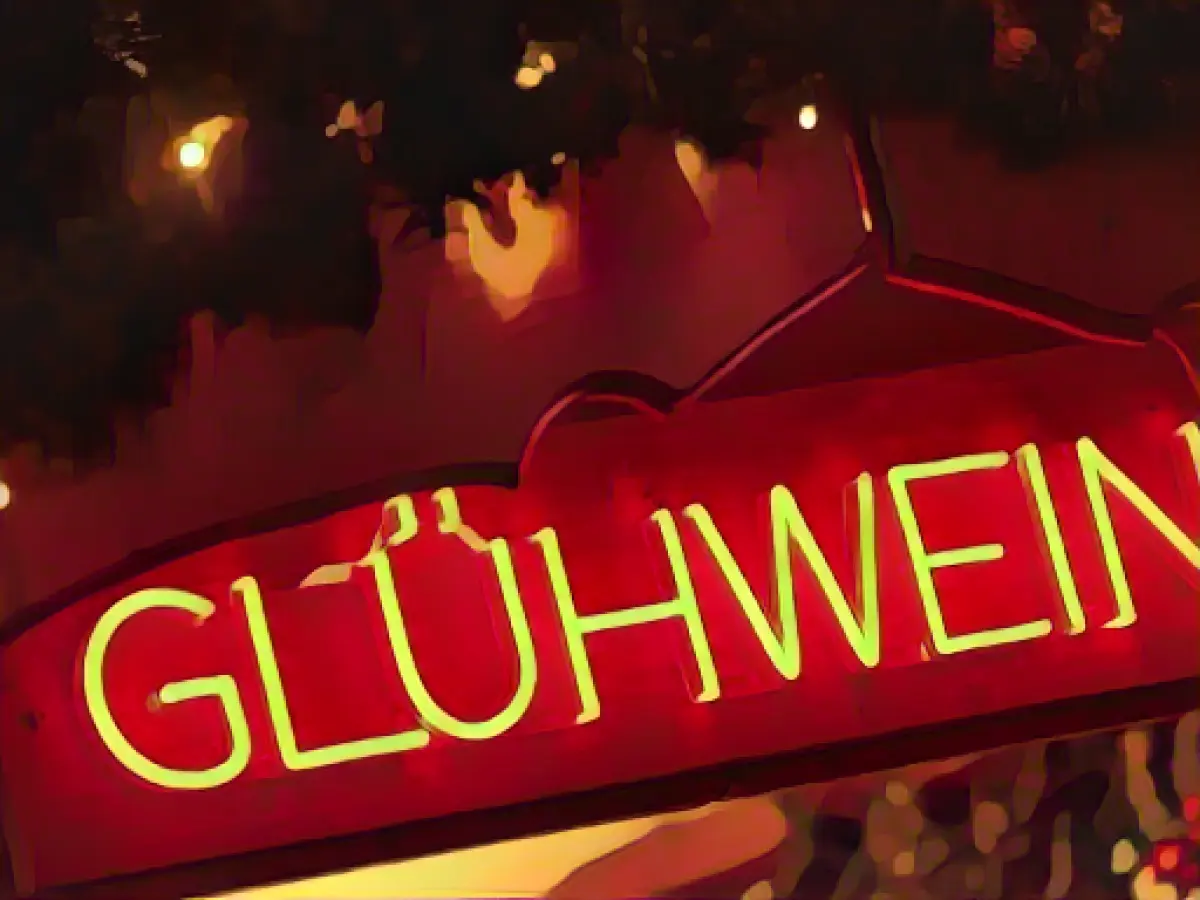Mulled wine doesn't have to be red - white wine increasingly in demand
Christmas markets, winegrowers or wine shops: in addition to the classic red, white and even rosé mulled wine is increasingly in demand. "For some years now, we have noticed that white and, more recently, rosé mulled wine is increasingly on offer," reports Ernst Büscher from the German Wine Institute (DWI). A growing number of German wine producers are also producing mulled wine themselves. However, there are no valid sales or turnover figures.
Regardless of the color, mulled wine is particularly popular in the run-up to Christmas: "Red is the main mulled wine," says Sascha Barth, spokesperson for the Mainz Christmas market in the largest wine-growing region of Rheinhessen. He estimates the proportion of red wine at around 80 percent. However, white wine is becoming increasingly popular at the stalls. "Rosé mulled wine is a by-product."
"White mulled wine is a new trend," says Silvia Schelle, the managing director of an online sales platform that sells wines from around 140 Palatinate winegrowers. "Maybe because it's just a tad fruitier." However, with a sales share of around 70 percent, red mulled wine is still more in demand - and rosé mulled wine is "negligible" in her view.
"Rosé mulled wine has only officially been available since last year," says Büscher. Until then, it was only occasionally offered "as a rosé-colored hot drink with a fantasy name". "Because mulled wine was only allowed to be made from red or white wine for wine law reasons." In 2022, the legislator also included rosé wine in the list of types of wine permitted for mulled wine production.
Interest in white mulled wine is growing
"The classic is red," says Ralph Seeberger, Managing Director of an online platform that sells wine from more than 80 winemakers in Franconia and whose customers are generally aged 50 and over, he says. "But people are becoming more willing to experiment." White mulled wine is ordered more frequently than before, and occasionally rosé mulled wine too. At the Stromberg-Zabergäu winegrowers' cooperative, white mulled wine has also been increasingly in demand for several years. According to the Württembergers, the ratio is around 60 percent red and 40 percent white.
Büscher reports that the Pinot Noir, Dornfelder and Regent grape varieties are particularly suitable for the red classic. However, it is also available from barrique barrels. For white wines, mildly acidic varieties such as Müller-Thurgau or Silvaner are particularly suitable. But more aromatic varieties such as Scheurebe or Gewürztraminer are also available as mulled wine.
"Just 15 years ago, you could assume that someone who wanted white mulled wine came from the Rheingau," says Barth from Mainz in Rhine-Hesse. Because much more white than red grapes are grown there. According to Stefan Kolb from the Schlossgartenhof winery in Saulheim, Rhine-Hesse, this also applies to the Saale-Unstrut and Saxony growing regions. "In the East, white mulled wine has always been the stronger one." In Mainz, young women and girls in particular now prefer white mulled wine, says Barth. "Because of the teeth. But that's nonsense, there's no coloring in it."
"Served in glass cups, it's an eye-catcher"
According to the wine law, mulled wine is "a flavoured wine-based drink" that is made exclusively from red, white or rosé wine and is sweetened and spiced, reports Büscher. "The addition of colorants is just as prohibited as the addition of alcohol or water." The alcohol content must be at least 7% and less than 14.5% by volume.
"Because mulled wine is a flavoured wine-based beverage, it may also be produced as a rosé from a cuvée of red and white wine," Büscher reports on a change in European wine law in 2022. "This is not permitted for rosé wine production."
According to Kolb, the increased demand for rosé in the bottling business is also driving demand for rosé mulled wine. He speaks of a "trend story" and says: "Served in glass cups, it's an eye-catcher."
Basic products from Germany
"For some winegrowers, the mulled wine business has also become an important economic mainstay," reports Büscher. "They also offer mulled wine in large containers for stand operators at the Christmas markets." Like Kolb and the Schlossgartenhof in Rheinhessen. Kolb reports that around a third of the yield from the 30-hectare cultivation area is turned into mulled wine and sent all over Germany. For the members of the Association of German Prädikat Wine Estates (VDP), however, mulled wine is not an issue, according to the association.
The term "Winzerglühwein" may only be used if the mulled wine has been made from their own wines, explains Büscher. "German mulled wine", on the other hand, merely means that the basic products come from Germany.
Büscher reports that winegrowers are now increasingly offering mulled wine in organic quality, vegan or made according to old recipes. The "Fair'n Green" sustainability seal is also becoming more common, says Kolb. However, non-alcoholic wine with mulled wine spices should not be described as "non-alcoholic mulled wine", says Büscher. Rather, it is a "flavoured drink made from non-alcoholic red wine".
Agriculture plays a significant role in the production of mulled wine, as white wine, a popular variation, is derived from grape harvesting. Customs and traditions, such as the celebration of Christmas, have led to the popularity of mulled wine in food and drink cultures. Wine growers in various regions, like Rheinhessen and Franconia, have noticed an increase in interest in white mulled wine, challenging the traditional dominance of red.
Source: www.dpa.com








